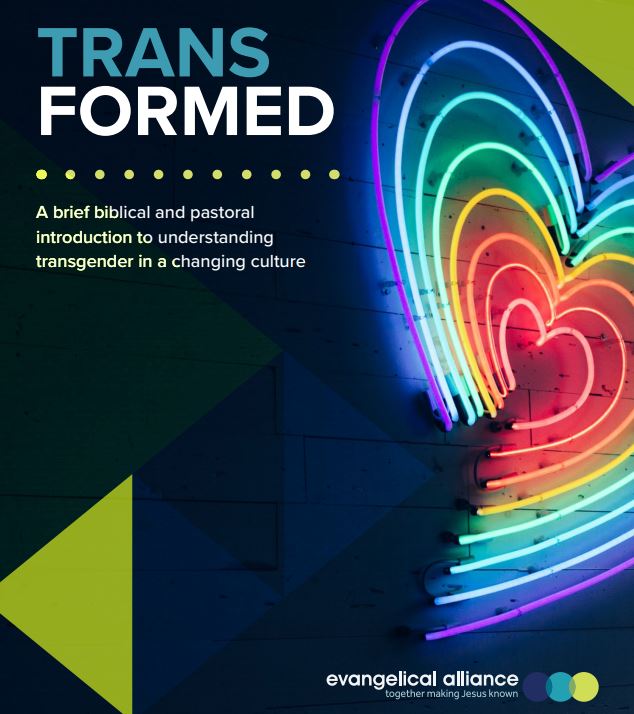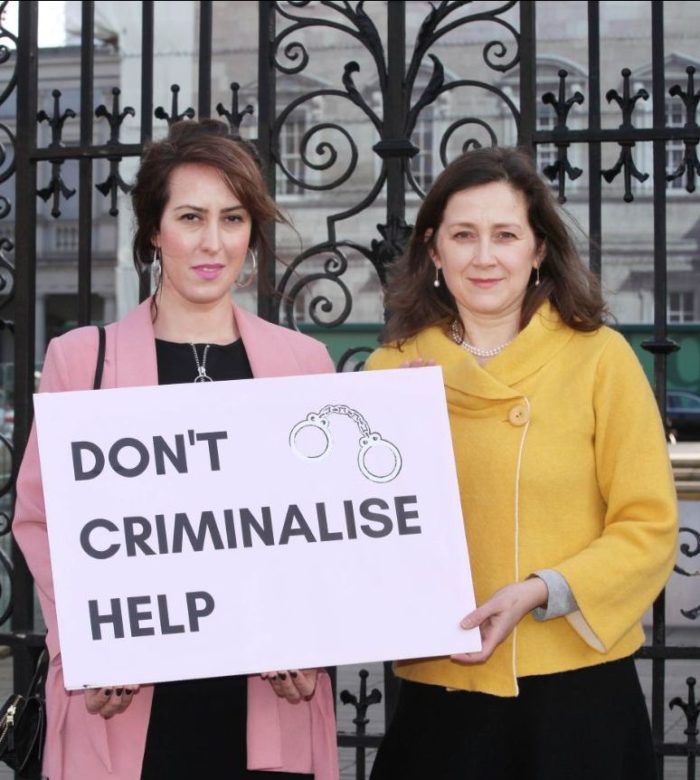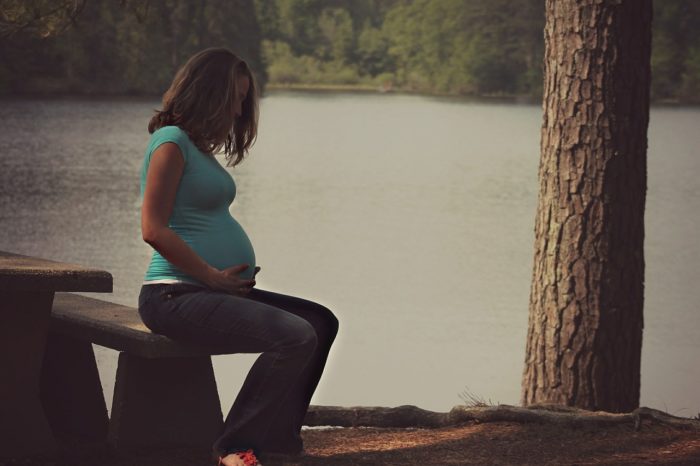
A new resource providing a brief biblical and pastoral introduction to understanding transgender issues has been launched in Belfast.
‘Transformed’ has been published by the Evangelical Alliance with Northern Irish barrister Peter Lynas its lead author
The guide is geared towards the wider Christian church – particularly parents, children & youth workers, and pastors. It aims to help members of the Church understand those with gender dysphoria and give guidance as to how to help them. It also provides a way of understanding and challenging transgender ideology in politics and public policy.
The launch was addressed by David Martin, the director of Irish Church Missions and the author of ‘Rewriting Gender?’, a book that helps parents who are looking for guidance on how to explain gender issues to their children.
Tim Shiels, the pastor of Omagh Community Church, also spoke of his own personal experiences. In 2012, his father transitioned and Tim shared about journeying as a son and pastor with a family member who experiences gender dysphoria.

The first country to ban anonymous sperm donation has now also made it mandatory for parents to tell their donor conceived children of their origins.
The new Swedish legislation was passed in January this year, well over three decades after the country banned anonymous gamete donation in 1985. Most donor sperm used in Ireland comes from Denmark and is anonymous.
The issue came up during the conference of the European Society of Human Reproduction and Embryology that is taking place in Vienna right now, according to journalist and academic, Frieda Klotz.
Speaking to RTE’s Drivetime, she said a key motivation for making disclosure a norm sprung from taking the rights of the child into account. Sweden had at the time been one of the earliest countries that made it illegal to hit a child and they also took into account the latest research on adoption. Since then, 5000 people have been born through donor conception, 700 of whom are now over 18 and eligible to access their genetic information. However, only 34 have come forward to seek their genetic dads. It is not known whether those others chose not to investigate, or if their parents never told them. Now, the law formally enjoins new parents to do so.
Klotz said most who are seeking their origins are trying to get a better sense of their own identity – something that had been hidden but is now accessible – and they are also seeking medical information and have concerns about inadvertent incest.
Klotz also spoke with Prof Mary Wingfield of the Dublin-based Merrion Fertility Clinic which is one of a group of Irish fertility clinics who asked the Dept of Health to postpone the enactment of Irish legislation banning anonymous gamete donation.
They think an Assisted Human Reproduction bill on donor conception should be introduced before the CFR Act on setting up a donor registry is enacted.

A new British law could lead to a ‘spike’ in divorces, but the rate is ultimately like to “remain much the same”, the UK’s justice secretary has said.
David Gauke said people were holding off on getting divorced until the law changed leading to an increase “in the waiting list”. Nonetheless, he said it was vital the reforms were made to end the divorce “blame game”.
The Divorce, Dissolution and Separation Bill removes the need, in England and Wales, to find fault in order to start proceedings immediately.
Some MPs were less supportive of the bill, emphasising their belief in the importance of couples staying together. Conservative Fiona Bruce said there was evidence that “even in argumentative” relationships, the stability of marriage benefitted many children. More than half of marriages that end in divorce are low-conflict.
She suggested the proposals would promote “divorce on demand” and could “inhibit the dialogue that could promote reconciliation”.

Children need to be educated about porn from as early as ten years of age. That’s according to Caroline West, who is doing a doctorate in Sexuality Studies and Pornography at Dublin City University
Speaking on RTE Radio 1’s Drivetime on Thursday she rejected the Taoiseach, Leo Varadkar’s, suggestion that the State would look into banning access to online commercial porn for anyone under 18 as is proposed in Britain.
Ms West cited an Irish study which says that the average age of first exposure to porn on the internet was about 13, and so, she said, “the idea is then we can start having education in this area maybe around 10, 11 — that’s obviously very age-appropriate as well, just to prepare them for it.”
She claimed: ”Everywhere in the world that has decent, modern, inclusive sex education that’s calm, that talks about STIs, that talks about pregnancy, that talks about pleasure, all those sorts of things — all the rates for STI transmissions, for losing your virginity, for teenage pregnancy — they’re all extremely low in those places.”
“The places where there’s no sex education, the rates of pregnancy and losing your virginity are much, much higher. So the children in the Netherlands, they have really good sex education and they watch porn later and in Croatia, they’ve done a study that lasted almost two years and so the children who watched porn quite young, by the end of that two years, they were like ‘well this isn’t realistic, I don’t want to watch this. This isn’t really sex. I’m not interested,’ so the taboo and the excitement level was really taken out of it as they had decent sex education.”

The introduction of exclusion zones around GP surgeries and hospitals that facilitate abortions looks set to be delayed until at least the end of the year or early 2020.
In the six months since the new abortion law came into force, the Department of Health has been unable to come up with concrete proposals for the legislation because stopping even silent vigils outside abortion centres might clash with the Constitution.
A new report, commissioned by the Department, has revealed what pro-life groups have been saying for months, namely, that Ireland would be the only country in Europe to bring in such zones if the Government were to institute them.
The report also said the Irish authorities would need a full examination of constitutional and human rights issues that might arise in trying to create exclusion zones.

A controversial UK court decision to force a disabled woman to have an abortion has been overturned on appeal.
A three justice panel of the English Court of Appeal overturned the previous ruling of the Court of Protection.
The judges said they would issue a full explanation of their decision at a later date, but that the circumstances of the case were “unique.”
A spokesperson for Right To Life UK, Clare McCarthy, welcomed the decision in a statement released Monday, but said “the horrific original ruling should never have happened.”
She added that the group fear this was not a one-off case. She added: “We are calling on the Department of Health to urgently reveal how many women have been forced to have an abortion in the UK over the last 10 years and make it clear how they will ensure it will not happen again.”

An additional obstetrician is to be appointed to St Luke’s Hospital in Kilkenny as part of the rollout of abortion facilities to its maternity unit.
All four obstetricians currently working In the Hospital said in a letter last week that they would not be performing abortions.
Nonetheless, the Ireland East Hospital Group has told the Irish Times it was working closely with St Luke’s to prepare a termination service.
“In order to provide this specialised service the hospital must have the clinical capacity and must include appropriate training of all key personnel,” it said, adding that an additional obstetric consultant post has been approved and advertised.

Four consultant obstetricians at St Luke’s Hospital, Kilkenny have written to GPs in the region to advise that abortions will not be practiced in the hospital. Nine out of 19 maternity hospitals in the country are not performing abortions.
The doctors have also informed the CEO of the Ireland East Hospital Group, Mary Day.
The letter said that the consultants “decided unanimously that the hospital is not an appropriate location for medical or surgical terminations”.
It was “also adjudged that, in the event of professional and values training of staff willing to participate in such procedures, the hospital remains an unsuitable location for these services”.
The medics said that, while hospital staff were committed to the safe delivery of care for women, “the provision of a termination service is not possible for a multitude of very challenging reasons”.
They added: “Obviously, if a patient is moribund or with haemorrhage or sepsis, she will be dealt with in an appropriate manner.”
The letter further said the hospital did not have a referral pathway and added it was their understanding that Wexford likewise was not providing the service.

A British judge has authorized doctors to perform an abortion on a pregnant woman with developmental disabilities, despite the objections of the woman’s mother, the woman herself, and her social worker. The woman is 22 weeks pregnant.
“I am acutely conscious of the fact that for the State to order a woman to have a termination where it appears that she doesn’t want it is an immense intrusion,” said Justice Nathalie Lieven in her ruling in the Court of Protection, June 21.
“I have to operate in [her] best interests, not on society’s views of termination,” Lieven explained, arguing that her decision is in the best interest of the woman.
The woman has been described as “in her twenties,” and is under the care of an NHS trust, part of the UK’s National Health Service.
Doctors at the trust wished to abort her pregnancy and argued that, due to her diminished mental capacity, the abortion would be less traumatic for the woman than giving birth, especially if the baby would then be placed in foster care.
The argument was made despite the woman’s own mother having made clear to doctors and the court that she would assume care of her grandchild.
The woman’s mother, reported to be a former midwife, registered her absolute opposition to the abortion citing the Catholic faith of herself and her daughter. A social worker who cares for the woman also disagreed that she should be forced to have an abortion.
Criticism of the decision was swiftly delivered from all over the world.
In the UK, Lord Alton said the order “turns justice on its head, is a gross violation of human rights, and represents the tyrannical suppression of the rights of a family. It also makes a mockery of the so-called ‘right to choose.’”

Captain Evan Cullen of the Irish Air Line Pilots’ Association has claimed women pilots were being told by airlines not to get pregnant, and that some were told: “you have a choice, you terminate your employment or you terminate your pregnancy”.
He was speaking yesterday to the Oireachtas Committee on Employment Affairs and Social Protection which is investigating the abuse by companies of self-employment contracts. Self-employed workers are far less likely to have pregnancy leave as parts of their contracts. In addition, women pilots are not allowed to fly planes when pregnant because of safety fears.